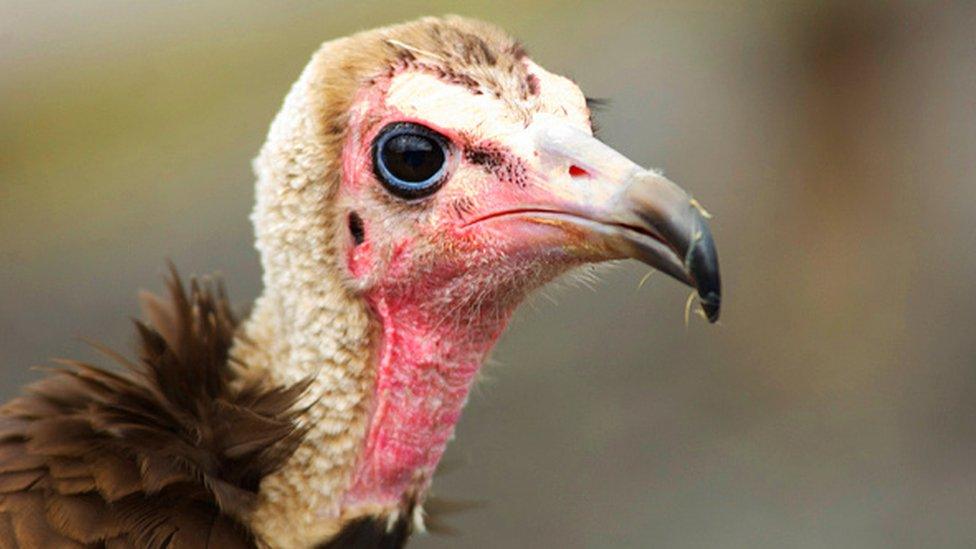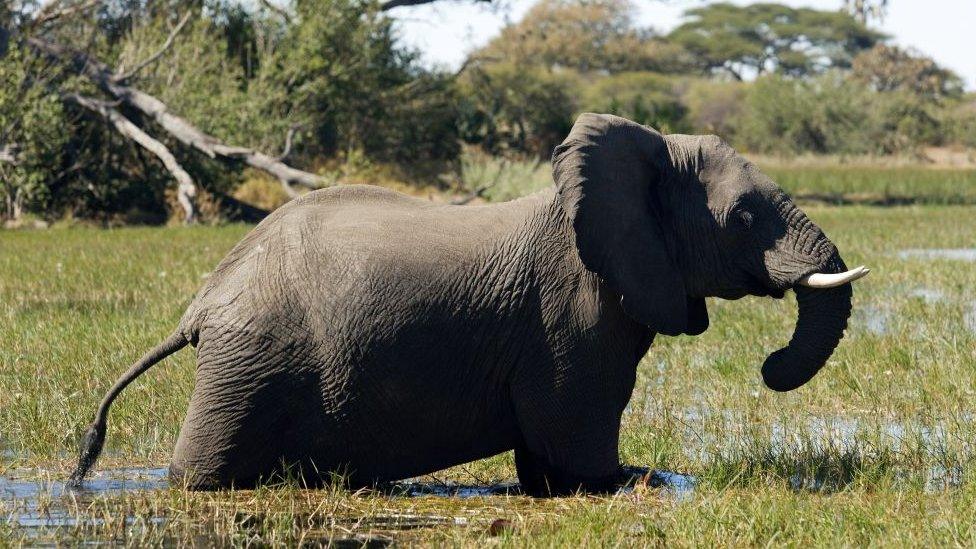Critically endangered vultures poisoned en masse in Botswana
- Published

Conservationists have called the suspecting poisonings "incomprehensible"
More than 500 critically endangered vultures have died of poisoning in Botswana, according to local officials.
A total of 537 vultures and two tawny eagles were found dead in the country's north-east, though it's unclear when.
The government suspects poachers who killed three elephants had laced their carcasses with poison.
Conservationists have called the incident one of the largest documented killings of the threatened species.
The government said the mass poisoning was "dangerous and harmful to the environment" and it urged members of the public to "desist from such illegal acts".
The area has reportedly been decontaminated and samples taken for a laboratory analysis.
Vultures circling a carcass can be seen from miles away, so poachers often poison them to prevent their activity being tracked, reports the BBC's Africa correspondent Alastair Leithead.
Most of the birds were white-backed vultures, which are classified as "critically endangered" by the International Union for Conservation of Nature.
"We've been seeing carcasses of elephants, some four months old, some less than a week old" reports Alastair Leithead, flying over Botswana
Among the dead were also 17 white-headed vultures and 28 hooded vultures, which are "critically endangered" as well.
Their deaths have occurred during the birds' typical breeding season, meaning that their offspring may also be affected.
"As vultures are late maturing and slow breeders, the magnitude of losing just under 600 vultures in one week is incomprehensible," said Kerri Wolter, CEO and founder of conservation charity VulPro.
"The species cannot withstand these losses and it is impossible to recover the disappearance of these individuals and breeding pairs in our lifetime."
Botswana sparked controversy last month after lifting its ban on hunting. The government argued that Botswana's booming elephant population was damaging farmers' livelihoods and that elephants had killed several people in rural areas.
Botswana has some 130,000 elephants, the world's largest population.
- Published22 May 2019
